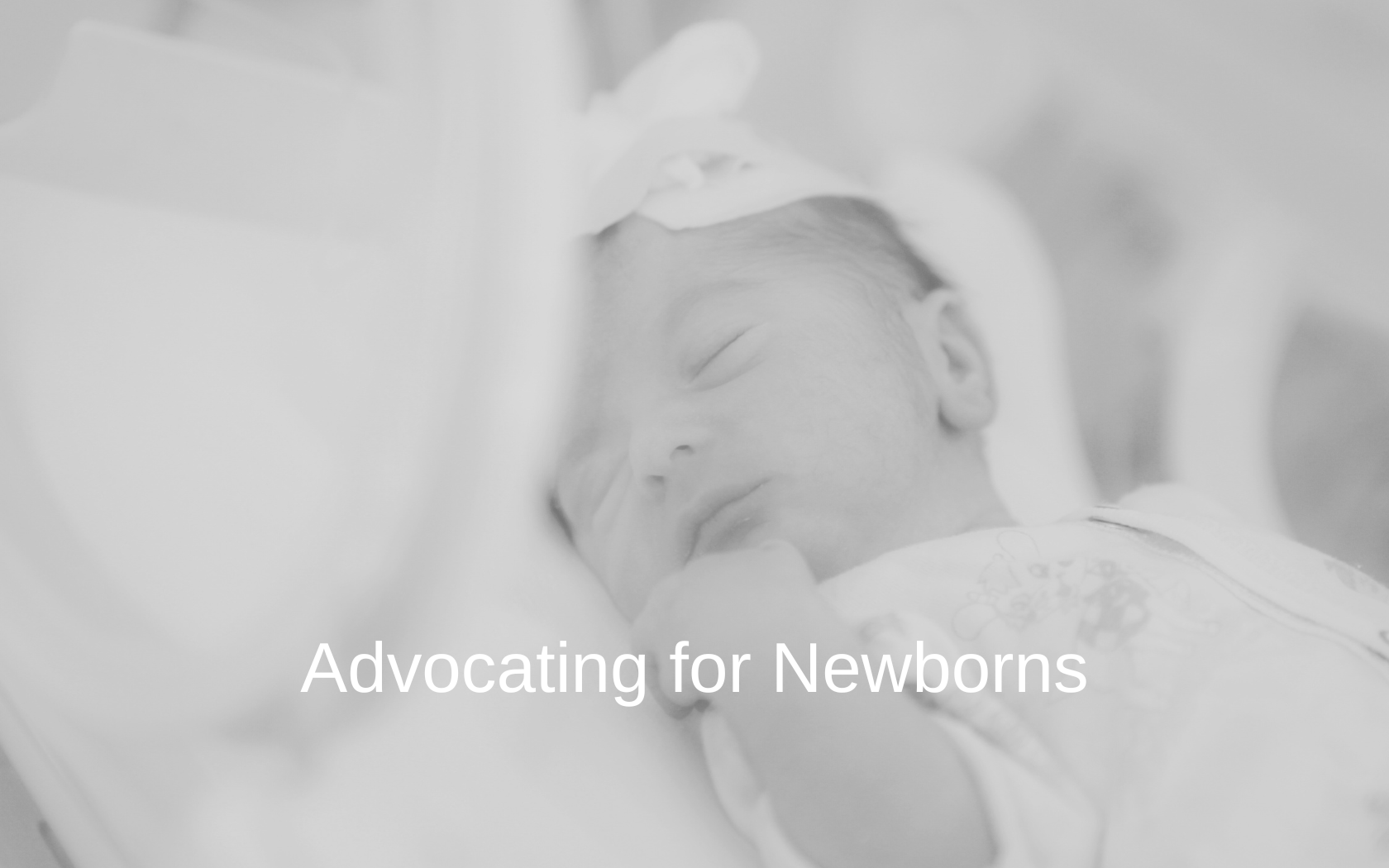Did you know that the number one cause of infant brain damage is oxygen deprivation? Sadly, many birth complications can lead to a lack of oxygen. Since babies’ brains are very fragile, even just a few minutes of low or no oxygen can cause irreparable damage. Learn more about how brain damage in babies due to lack of oxygen happens, and why a doctor’s negligence may be to blame.

What Causes Infant Brain Damage?
The most common causes of infant brain damage are:
- Oxygen deprivation
- Head trauma from a difficult delivery
- Jaundice that leads to kernicterus
- A maternal infection like chorioamnionitis
As mentioned above, oxygen deprivation is to blame for most cases of infant brain damage. A lack of oxygen in babies is also called perinatal or birth asphyxia. Birth asphyxia causes about 900,000 infant deaths each year, according to the World Health Organization. It’s one of the main causes of infant mortality.
Two types of oxygen deprivation cause brain damage: hypoxia and anoxia. With hypoxia, oxygen to the brain gets low, but it’s not cut off completely. Common causes of hypoxia include respiratory distress syndrome, pneumonia, or issues during childbirth.
Anoxia is more severe. There’s a complete absence of oxygen supply to the brain. One example of how anoxia can happen is when the umbilical cord is compressed during delivery.
Both hypoxia and anoxia can have serious consequences for babies. Their organs and systems are still developing. Quick medical intervention is crucial for minimizing long-term effects, like permanent brain damage.

Causes of Oxygen Deprivation Before or During Birth
Brain damage in babies due to lack of oxygen can happen for many reasons. Here are some examples:
- Extended labor. Labor that goes on too long can put stress on the baby. It may cause oxygen deprivation.
- Placenta problems. Placental abruption, which is the premature separation of the placenta from the uterine wall, can decrease the oxygen supply to the baby. Another placental issue is placenta previa. With this condition, the placenta covers part of the cervix. That can hinder normal delivery and lead to oxygen deprivation.
- Preeclampsia. High blood pressure during pregnancy can affect how the placenta functions. This might reduce oxygen supply and lead to infant brain damage.
- Diabetes. During prenatal check-ups, doctors should check for maternal diabetes. Uncontrolled diabetes can cause complications that affect fetal oxygenation.
- Meconium aspiration. Meconium is a baby’s first bowel movement. If they pass this stool and breathe it into their lungs, they can have respiratory problems.
- Instrument-assisted deliveries. Sometimes doctors opt to use forceps or vacuum extraction to help deliver a baby. Misuse of these tools can injure a baby and lead to oxygen deprivation.
These aren’t all the reasons for oxygen deprivation in infants. But they are the most common.
Negligence Can Lead to Infant Brain Damage
Unfortunately, brain damage in babies due to lack of oxygen can be the result of negligence. The legal definition of medical negligence is when a healthcare worker fails to provide the standard of care that’s expected and harms a patient.
One example of negligence is when the birth team fails to respond to a baby showing signs of distress. Another is failing to act quickly when the umbilical cord is wrapped around a baby’s neck. Just a few minutes without oxygen can cause infant brain damage. So there’s not a minute to waste.
Other examples of how negligence could lead to infant brain damage include:
- The baby is abnormally large, making vaginal birth difficult. But the doctor doesn’t recommend a C-section.
- The hospital lacked equipment or monitors that would have alerted them to complications during delivery
- The birth was understaffed, so no one responded to the baby’s medical emergency in time.
- A doctor used excessive force when trying to deliver a baby with forceps, injuring the baby’s brain.

Legal Options for Infant Brain Damage Due to Negligence
Did your child sustain brain damage after negligence occurred during pregnancy or delivery? You may have a valid malpractice claim. It may be possible to claim damages such as:
- Your child’s past and future medical expenses
- Wages you lost while staying home or in hospital to care for your child
- Pain and suffering experienced by your child
- Therapy and rehabilitation costs
- Costs of special education or assisted learning programs
- Home modifications and medical equipment expenses
- Loss of earning capacity for your child in the future
- Emotional distress for both you and your child
- Diminished quality of life for your child
- Costs associated with long-term care and assistance
- Adaptive technology and assistive devices
To find out if you have a valid claim, contact our malpractice team. We work tirelessly to help families win birth injury negligence cases. Many have involved brain damage in babies due to lack of oxygen. Let us put our ample experience to work for you. Get in touch today to schedule a free consultation.
Brain Damage in Babies Due to Lack of Oxygen FAQs
It’s possible to reverse mild brain damage. But whether someone can make a full recovery or not depends on which part of the brain was damaged from lack of oxygen, and how severe the damage was.
Therapies that may help reverse brain damage from lack of oxygen include:
– Oxygen therapy (Providing oxygen immediately can minimize damage.)
– Hyperbaric Oxygen Therapy (HBOT) (breathing pure oxygen in a pressurized environment.)
– Cooling therapy (lowing the body’s temperature slowly to prevent damage to the brain)
– Neuroprotective drugs
– Physical therapy, speech therapy, and occupational therapy
– Cognitive rehabilitation (Focuses on improving memory, attention, and problem-solving skills.)
The exact amount of time it takes before damage occurs varies. But even just a few minutes without enough oxygen can cause serious harm. Within 5 minutes, brain cells can start to die. In 5-10 minutes, significant brain injury is likely. After 10 minutes, the likelihood of severe brain injury or death increases dramatically.
Yes, an MRI (Magnetic Resonance Imaging) can show brain damage caused by a lack of oxygen. MRI is a highly sensitive imaging technique. It provides detailed images of the brain’s structures. It can detect various types of brain injuries, including those resulting from hypoxia (lack of oxygen).
The survival rate for hypoxic brain injury is around 36%, according to clinical trials of post-hypoxic coma patients. 64% of these patients died, and 9% remained comatose. But this data is from one study only. The survival rate for hypoxic brain injury varies widely depending on several factors, including:
– Severity and duration of the oxygen deprivation
– The individual’s age and overall health
– Timeliness and quality of medical intervention.




